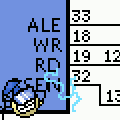|
AgentCow007 posted:I've been at my 'junior software developer' job for a year now and still haven't touched a line of production code. I'm only half joking when I say get another job but don't quit this one and just reap two paychecks.
|
|
|
|

|
| # ? May 17, 2024 22:29 |
|
AgentCow007 posted:I've been at my 'junior software developer' job for a year now and still haven't touched a line of production code. Having 1 year of professional experience, even what you think is garbage experience, already puts you leagues ahead of a lot of junior dev applicants coming out of sus bootcamps and such. If you can have some examples of building something and what you learned from it, and can stumble through some coding problems you can do it I promise you. After the new year would be a fantastic time to do some interviews and likely get some offers. New year, new budgets, new headcount, everyone recharged off the holidays, etc. Kumquat posted:I'm only half joking when I say get another job but don't quit this one and just reap two paychecks. Also this... mostly joking. But definitely use your lax full time job to hunt for a new one. Or work on skills to hunt for a new one.
|
|
|
|
AgentCow007 posted:I've been at my 'junior software developer' job for a year now and still haven't touched a line of production code. Use your free time to job hunt. When people ask you about your previous job, play up the positives. Don't mention the negatives. This isn't regarded as lying, but as being a responsible professional. Yeah, it's weird. Are we still recommending Cracking the Coding Interview? Running through the problems in that in your extensive free time wouldn't be a bad idea, and then you could honestly say that you spent a lot of time developing efficient algorithms at your current job. You don't have to do them all at once, you can do one or two a day since you aren't in a hurry. Having a portfolio piece to show off helps, I guess? But I've gotten every job I've ever had without one. Most people accept that everything you worked on at your previous employer is proprietary and you can't share it.
|
|
|
|
AgentCow007 posted:I've been at my 'junior software developer' job for a year now and still haven't touched a line of production code. Yeah honestly you should be able to land another job as a junior/associate without a lot of trouble after a year working. There's a world of difference in an interviewer's eyes between "junior candidate with 1 year experience" and "fresh grad, same as all the other fresh grads, just throw a dart." I would definitely start looking though, you should be spending the majority of your time coding at your level. They're wasting your time and staying there is going to hurt your career long term.
|
|
|
|
As others already mentioned, a year of experience already puts you a step above other new grads. If your Java training was any good you might even be able to jump up to an intermediate position.
|
|
|
|
Now that I've been a manager for a couple months, I have a lot more insight into some of the feelings I've had about old managers. A lot of them really _didn't_ do anything.
|
|
|
|
Che Delilas posted:They're wasting your time and staying there is going to hurt your career long term. Solid advice
|
|
|
|
I did two phone interviews for google and got invited back for a virtual onsite. Any tips/advice for onsite day? I feel good about my prep and I have plenty of time to review because of the holiday slowdown. My main concern is how to stay sharp for the whole day and not adrenaline dump and crash after the first interview (which I did during the phones). All I can think to do is just grind mock interviews  . .
|
|
|
|
the most effective thing you can do is not give a poo poo i don't really know how to cultivate that though, so this is unhelpful.
|
|
|
|
College Rockout posted:I did two phone interviews for google and got invited back for a virtual onsite. Any tips/advice for onsite day? I feel good about my prep and I have plenty of time to review because of the holiday slowdown. My main concern is how to stay sharp for the whole day and not adrenaline dump and crash after the first interview (which I did during the phones). All I can think to do is just grind mock interviews Eat something before your interviews.
|
|
|
|
More specifically, eat an adderall
|
|
|
|
Achmed Jones posted:the most effective thing you can do is not give a poo poo quantity has a quality of its own for this
|
|
|
|
College Rockout posted:I did two phone interviews for google and got invited back for a virtual onsite. Any tips/advice for onsite day? I feel good about my prep and I have plenty of time to review because of the holiday slowdown. My main concern is how to stay sharp for the whole day and not adrenaline dump and crash after the first interview (which I did during the phones). All I can think to do is just grind mock interviews My approach was to cram LeetCode and after reflecting on my past few months here I�ve come to the conclusion that I have no real advice, it�s a lottery. Do your best, good luck, and remember: you matter!
|
|
|
|
roll more dice. the odds are way more like craps than the lottery, and the relative independence of dice throws means that you can be basically certain of gettin a deec job if you throw dice like 30 times
|
|
|
|
You can do anywhere from meh to badly on at least one out of the five or six. So don't let it one bad interview ruin the remaining ones. The dice roll comment is spot on. Odds are low but if you have reasonable algorithm knowledge, even with gaps, you can get offers if you interview enough to weed out interviews that have questions you don't know, garbage questions, and garbage interviewers.
|
|
|
|
asur posted:The dice roll comment is spot on. Odds are low but if you have reasonable algorithm knowledge, even with gaps, you can get offers if you interview enough to weed out interviews that have questions you don't know, garbage questions, and garbage interviewers. I would really dig a question on garbage collecting. That be a nice change of pace.
|
|
|
|
lifg posted:I would really dig a question on garbage collecting. That be a nice change of pace. this is weird. nobody's gonna ask you about printing out my posts
|
|
|
|
bob dobbs is dead posted:quantity has a quality of its own for this yeah this is true
|
|
|
|
Thanks for the responses! Admittedly I have been obsessing over being prepared for this and non-stop grinding leetcode. Sounds like the best thing to do is keep applying for jobs and work on my mental hygiene to be in the best headspace going into it. Cheers, I'll let y'all know how it goes in January.
|
|
|
|
College Rockout posted:I did two phone interviews for google and got invited back for a virtual onsite. Any tips/advice for onsite day?  I put a second webcam on a tripod and aimed it at a whiteboard. I fed the input from the camera into Webcamoid and then shared the Webcamoid preview window when needed during the interview. I used Webcamoid's Configure Effects -> Matrix Transform with a transform of: [-1, 0, 0] [ 0,-1, 0] ... to rotate the image 180 degrees. That way, the picture was right-side up for both me and the interviewer. The black lines on the board show me the cutoff points where the camera can't see, so I can keep my writing in the visible area of the board. There's a keystone effect to the image, but nothing so bad that it is distracting. Tape the tripod with masking tape to keep it from rotating and to keep it anchored to the same spot on the whiteboard. Let me tell you, I used this in three of my five Google interviews, and each of my interviewers said that they thought this setup was fantastic. Rather than having to watch a candidate try to explain things with their hands or use that slow drawing tool, they saw me do one or two quick sketches, gave their feedback, and we got the show on the road ASAP. There was one coding question that I got that involved pointer math and memory alignment, and using this setup totally saved my butt because I could sketch pointers and where they pointed to in various buffers. The Google interviewers want to "see how you think" in your interviews, and it's hard to beat a setup like this. I'd sketch something, point at things, talk to the interviewer, do a quick erase and redraw, etc. You can also write things like the big-O time for various things on the side as you discuss options and the like. Finally, once you get a solid plan of attack, you type the important bits into the Google Doc that they share with you so that the interviewer can refer to it later. The interviewer is left with the impression that you're organized with a plan of attack and that you're ready to explain everything with examples quickly and efficiently. Edit: Also, if you have a really snazzy diagram that sums everything up nicely, you can screenshot the preview window and then Ctrl-V the image into the Google Doc so that the interviewer has it in his/her notes. 
hendersa fucked around with this message at 03:55 on Dec 23, 2021 |
|
|
|
hendersa posted:This might help. Instead of trying to use that awful drawing tool in Google Docs, set up something like this: I imagine you get bonus points just for having a setup like that.
|
|
|
|
Maybe I'm missing something, but I've been doing effectively the same thing with a cheap drawing tablet and screen share for years now. It has the added bonus of working as a second monitor when you're not drawing on it. And also not taking up so much space.
|
|
|
|
yeah but that's using a product for its intended purpose. there's not even a hint of rube goldberg in there. boooooooriiiiiiing
|
|
|
|
Motronic posted:Maybe I'm missing something, but I've been doing effectively the same thing with a cheap drawing tablet and screen share for years now. It has the added bonus of working as a second monitor when you're not drawing on it. And also not taking up so much space. Also a good idea, but the whiteboard is bigger :p
|
|
|
|
Motronic posted:Maybe I'm missing something, but I've been doing effectively the same thing with a cheap drawing tablet and screen share for years now. It has the added bonus of working as a second monitor when you're not drawing on it. And also not taking up so much space. Achmed Jones posted:yeah but that's using a product for its intended purpose. there's not even a hint of rube goldberg in there. boooooooriiiiiiing  Anyway, if you don't have a tablet, but you do have a webcam sitting around, point the webcam at a sheet of paper and you're off to the races for cheap. The Google interview tip PDFs that are provided to candidates state that you can use paper and pencil if that is your preference. The problem is, I held a sheet of paper up for my laptop's integrated webcam and the webcam would blur it, apply the background filter to the paper, or just couldn't see it well enough. So, the second webcam with a shared preview window was the way to go with what I had available.
|
|
|
|
i'm just joshin ya, no defense necessary - it's a cool setup also it's fun to make rube goldberg stuff
|
|
|
|
Achmed Jones posted:i'm just joshin ya, no defense necessary - it's a cool setup quote:also it's fun to make rube goldberg stuff
|
|
|
|
hendersa posted:This might help. Instead of trying to use that awful drawing tool in Google Docs, set up something like this: This is a really cool setup, stealing this. I can see this being immensely helpful for working through tree and graph problems too. It takes me a god awful long time to *show my thinking* and work through test cases for those because I've had to diagram them in the editor using spaces and slashes and it's terrible pre: 10
/ \
5 11
/ \
1 2
|
|
|
|
Feel like my new team's documentation is an oral tradition.
|
|
|
|
oliveoil posted:Feel like my new team's documentation is an oral tradition. At least you can afford to eat now.
|
|
|
|
Documentation wise, I kinda feel like my team is on the other end of that spectrum right now. We have dozens and dozens of markdown-based docs describing our internal architecture and procedures. It's not terrible, but they aren't organized in a consistent fashion and aren't updated frequently enough to keep up with reality. This is the natural result of organically adding new docs over the years. Part of me wants to plan a structure and reorganize all the docs, delete outdated / duplicated information, and add some automation / policy so it stays up to date. On the one hand it feels like it would be extremely helpful for the team (especially newer members), but I dunno if it's 'next level impact' so it's hard to make time for. Maybe I can just propose it as a project and see if anyone else is interested.
|
|
|
|
leper khan posted:At least you can afford to eat now. 
|
|
|
|
maybe he will get some gambling debts and lose the money to eat food again this time w job
|
|
|
|
oliveoil posted:Feel like my new team's documentation is an oral tradition. i also remember being in actual meetings where people would have irl edit wars and complain about the professionalism of pages (that were only visible on a corporate intranet.) i never complain about lack of documentation anymore. if they want to pay me to ask a bunch of random questions to people who can't be bothered, or reverse engineer someone's code so i can do my own job, fine by me, there are worse things that not having documentation. I drink myself to sleep some nights to forget what I have seen.
|
|
|
|
This guy fucks
|
|
|
|
But what about the totem of corporate values? E: just remembered that one of my former employers is headquartered in unincorporated area called Indian Land. gbut fucked around with this message at 23:48 on Dec 23, 2021 |
|
|
|
I really like my current approach to documentation: - every repo has a "reason this exists" and simple design diagram right at the top of the README.md, and how to debug and deploy - playbooks for common things like "how to reset kafka offsets" - insomnia and navi configs - markdown ADRs for the big problems
|
|
|
|
luchadornado posted:- markdown ADRs for the big problems This is the most impactful IMO.
|
|
|
|
Yeah, keeping track of decisions is super important for anything with a lifespan of years. My team has not been consistent on this, and now I feel like half my comments on design reviews are like "I see that your design is trying to be consistent with what we've done in the past, but to provide some context, when we decided to do things that way: (we did it for abcd reasons stopped mattering 2 years ago || we overlooked wxyz and regret it || we literally didn't consider any alternatives because we didn't know better)"
|
|
|
|

|
| # ? May 17, 2024 22:29 |
|
Has anyone org figured out a pivot away from Docker Desktop for OSX yet? Given the lack of news, I'm assuming a lot of companies will be paying Docker in a month.
|
|
|



























